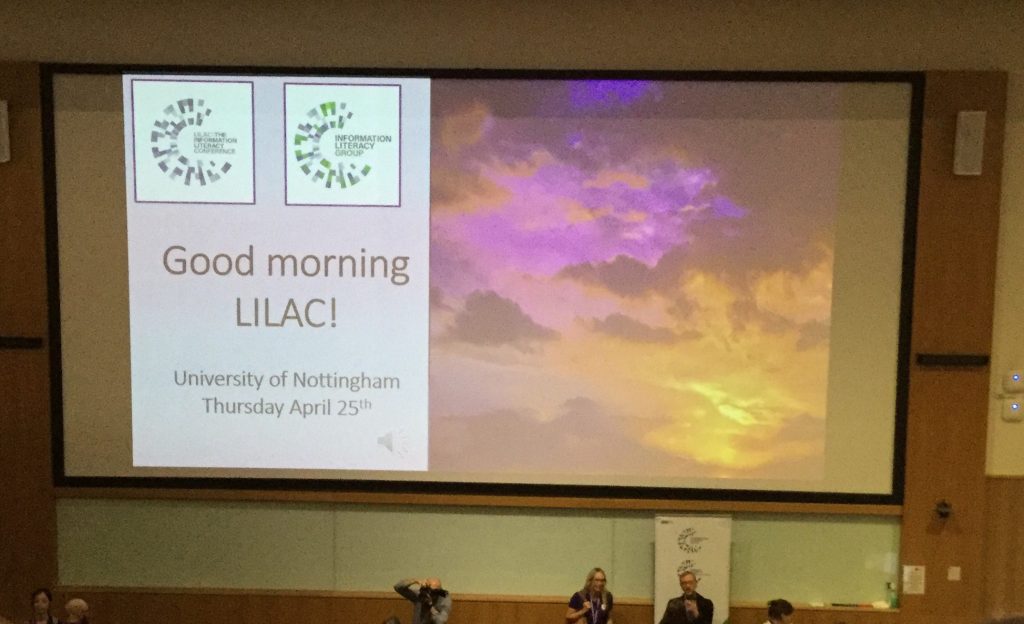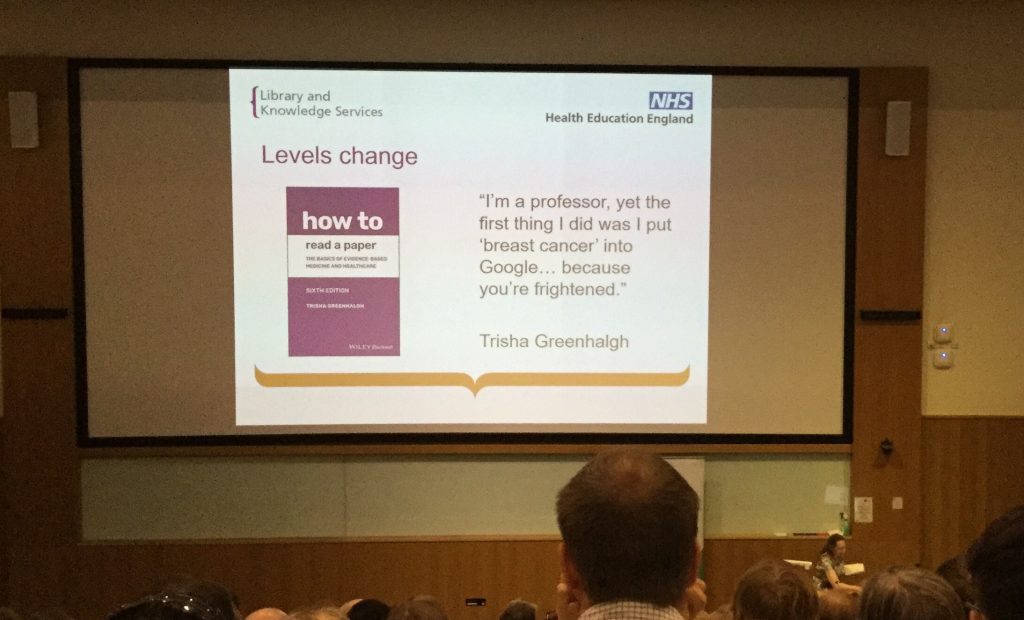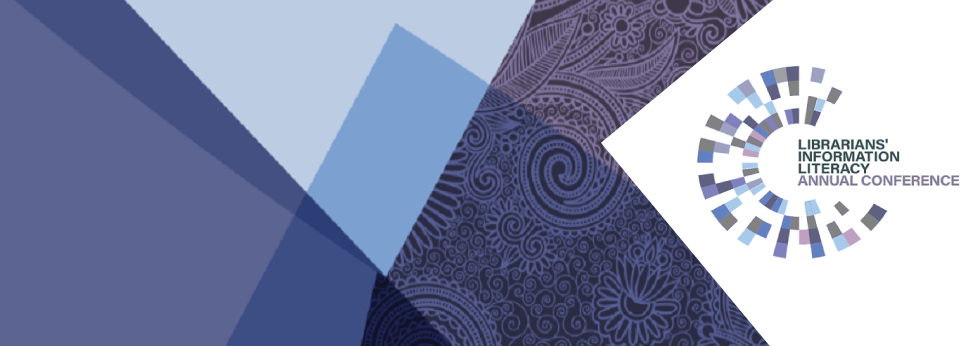
Thursday’s keynote was by Ruth Carlyle, Head of Library & Knowledge Services and Technology Enhanced Learning across the Midlands and the East of England.
Ruth spoke about the vital importance of health literacy, which is where information literacy gets real as it’s about life choices. It’s essential to make sure that people have access to health information that can be understood. However, numerous studies in different countries have shown that this is not the case. In truth, many adults struggle to understand an instruction leaflet about paracetamol. When faced with a serious diagnosis, the panic can cause even the most academic people to turn to Google:

So what can be done to help this situation? The NHS has produced a “how to” guide on health literacy, along with other useful resources to raise awareness and guide those working in the health sector. The healthcare provider should take responsibility for whether the patient understands the information they are given. A review has also recently been published on “Preparing the healthcare workforce to deliver the digital future and this talks about e-health literacy. Information literacy skills are needed to enable this.

